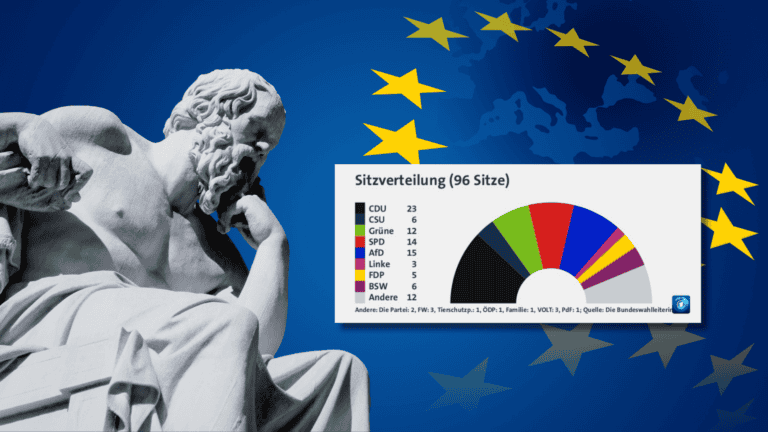Learning Virtue from Poverty: Insights from Diogenes' Quote
It is suggested to us almost everywhere that we have to make big money in order to lead a good life. And even if money is not inevitably bad, it is usually the case that those who are unhappy with little money will not be happy with a lot of money either.
In this article we will look at how this is to be understood and we will take an ancient quote from Diognes to help us do this.
Diogenes was one of the great ancient Greek philosophers and left us many insightful quotes that still inspire us today. One of his most famous quotes is:
"Poverty is a virtue you can teach yourself."
Diogenes
This quote has been the subject of much discussion and debate as it challenges our usual notions of wealth and success.
For Diogenes, poverty was not simply a lack of material possessions, but a way of life that went beyond materialism. For him, poverty was a means of cultivating virtues such as simplicity, self-confidence, humility, and generosity.
Diogenes believed that by living a simple life without luxuries, one can learn to appreciate what is truly important and valuable in life. Diogenes' quote reminds us that poverty, when viewed through the lens of virtue, is not a curse but a blessing.
And this is exactly what - both 2000 years ago and today - is usually overlooked:
If we have not learned to be satisfied with a little, we will not be satisfied with a lot.
Once we have understood this and learned to be frugal, nothing stands in the way of a contented life. Regardless of how much money we have on the side or not.
By the way, why low income is so despised in modern society, we discuss in detail in this article.
So what can we learn from Diogenes' quote?
First it teaches us that true happiness does not depend on how much wealth or material possessions we have. Rather, it depends on our ability to live a simple, virtuous life in which the emphasis is on inner contentment and spiritual well-being.
Second it reminds us that self-confidence and humility are the most important virtues that enable us to live a fulfilled life. By relying on our own strengths and resources and not trying too hard for external validation, we can harness our inner strength and achieve great things without losing sight of our values.
Third emphasizes the importance of generosity and compassion, which we can only learn if we have experienced the struggles and challenges of poverty.
It is important to note, by the way, that Diogenes' quote does not mean that we should seek poverty for its own sake. Rather, it is meant to remind us that wealth and materialism are not synonymous with happiness, and that a simple, virtuous life has much to offer even when one has access to material wealth.
He also encourages us to cultivate virtues such as humility, self-confidence, and compassion, which can be the foundation for a fulfilling and meaningful life.
Epicurus (and most other ancient philosophers, by the way) came to the same conclusion:
Conclusion
Diogenes' quote, "Poverty is a virtue you can teach yourself," is still relevant today because it challenges our obsession with wealth and materialism and asks us to focus on cultivating virtues that really matter in life.
It teaches us that true happiness comes from a simple, virtuous life in which the focus is on inner contentment and spiritual well-being. By embracing virtues such as simplicity, self-confidence, and compassion, we can learn to appreciate what is truly valuable in life and live a full and meaningful life.
Is there another conclusion you draw from this quote? Feel free to let us know in the comments.








Your blog post was a treasure trove of practical advice and tips. I found myself jotting down ideas and strategies to implement in my own life.